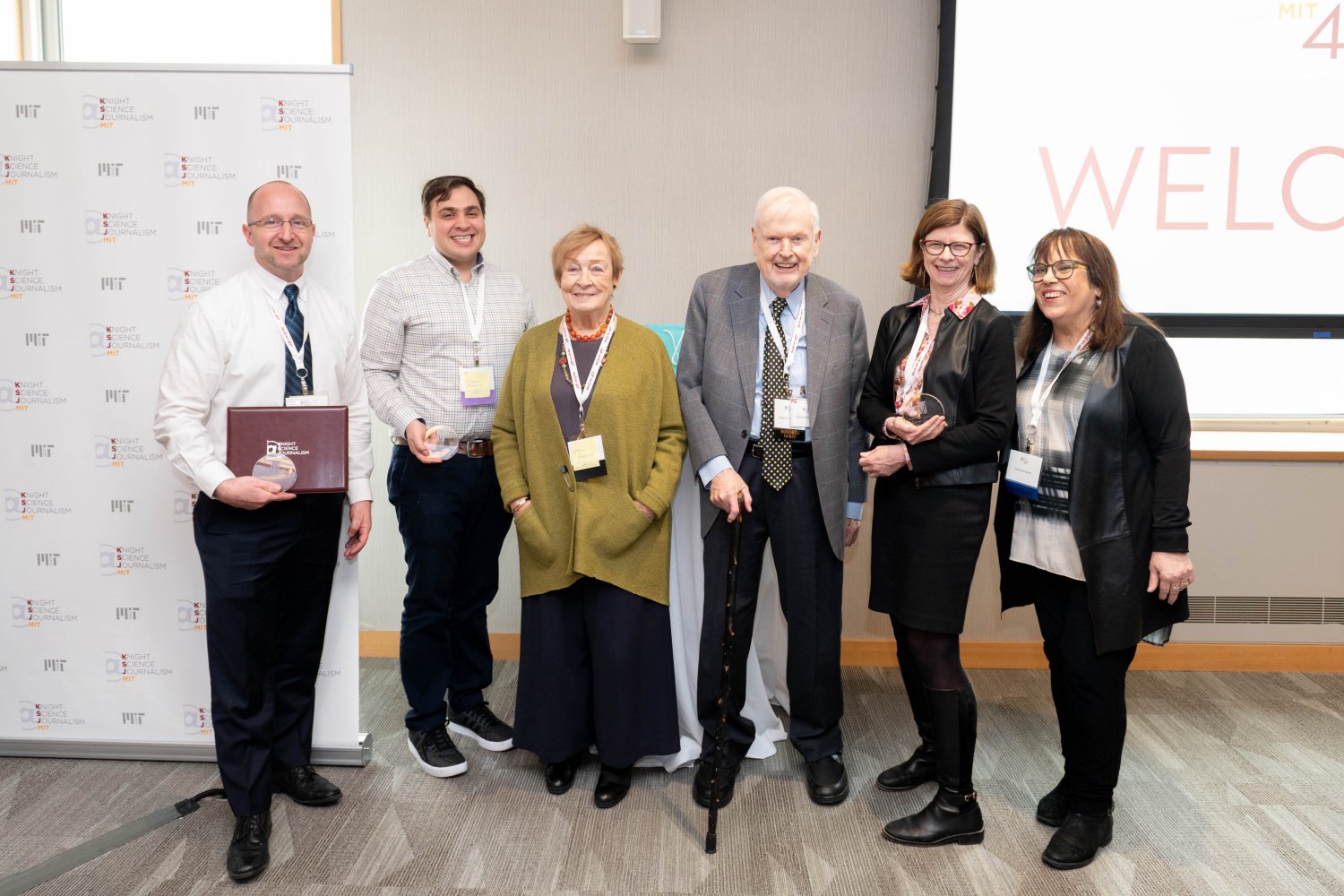
Local reporting is a critical tool in the battle against disinformation and misinformation. It can also provide valuable data about everything from environmental damage derived from questionable agribusiness practices to the long-term effects of logging on communities.
Reporting like this requires more than just journalistic chops. It needs a network that can share these important stories, access to readers, and financial support. That’s why organizations like the Knight Science Journalism Program at MIT and its Victor K. McElheny Award are important.
Founded in 2018 with a gift from Knight Science Journalism (KSJ) Program founding director Victor McElheny and his wife, Ruth McElheny, the KSJ Victor K. McElheny Award rewards local science journalists for their pioneering work and their stories’ impacts.
“The prize can help illustrate a continuing contribution to the maximum level of public understanding of what technology and science are achieving, and what these achievements imply for humanity,” McElheny says.
The award comes with a $10,000 prize.
“Local science journalism has value, in part, because consolidation in this sector has meant fewer journalists and a shrinking pool of resources with which to do this important work,” notes editor Cathy Clabby, a Knight Science Journalism Fellowship Program alumna (2008). Clabby was part of the team at The Charlotte Observer and The Raleigh News and Observer that earned the McElheny Award in 2023 for its poultry farm investigation.
“The award demonstrated a commitment to high journalistic standards,” Clabby says.
These journalistic standards and the accompanying national recognition for awardees can lend further legitimacy to long-form science journalism.
Features and outcomes
Additionally, while some news outlets are starved of the resources necessary to produce deeply-researched, high-quality stories, receiving the McElheny Award can help raise the visibility of small and nonprofit newsrooms, which can help with circulation, operating expenses, and fundraising.
“The award has a very real value to our audience, especially as we develop our digital subscriber model,” notes journalist Tony Bartelme, one of several Charleston Post and Courier reporters whose feature on the Gulf Stream won the inaugural award in 2019. “If readers see this kind of national recognition, they’re more likely to see the value of subscribing.”
“The financial element of the award is certainly a delightful surprise, particularly for a team project like this with a small budget,” says journalist Aaron Scott, whose team at Oregon Public Broadcasting won for its “Timber Wars” podcast series in 2021. “It filled me with joy getting to tell my colleagues they’d be getting bonus checks in the mail.”
Deborah Blum — the Pulitzer Prize-winning director of the Knight Science Journalism Program and founder of Undark Magazine — argues that local and regional journalists play a central role in promoting science literacy and critical thinking skills among their readers. Blum describes an information ecosystem worthy of preservation, with local science journalism acting as a fundamental building block of public consciousness and shared understanding.
“Science stories told by reporters in the home community, known and trusted by their neighbors, have a special ability to reach readers and listeners,” Blum says.
Value, vision, and recognition
Storytelling has value beyond views, clicks, and shares, according to McElheny Award winners.
“An informed electorate helps ensure a functional and accountable government,” Clabby asserts.
Journalists point to the skills necessary to produce thoughtful, reasoned stories that can impact readers, communities, and other journalists as valuable assets for creating powerful pieces.
“Science journalism is hard to do because it takes time to wade through it all and understand the science with enough depth to tell the story properly,” Bartelme says. “But, what’s more important than a planet on fire?”
Further, recognition from their peers can serve as validation for what can sometimes become months of research and reporting to produce such important stories.
“Recognition [as evidenced by] the Victor K. McElheny Award is deeply rewarding,” Scott believes, “because it means some of our most accomplished and thoughtful peers are listening to, reading, and thinking deeply about a story we’ve invested so much in telling.”
Outcomes and impacts
The Victor K. McElheny Award for Local Science Journalism confers national recognition on journalists performing a critical function in producing an informed electorate. Local science journalism can have lasting impacts on readers, apprise audiences of advances and challenges related to science and technology, and help secure funding for current and future efforts.
“Fact-based journalism has value for audiences,” Clabby says.
Scott, noting the value of balanced science reporting, described science journalism as “both more important, and more under threat by politicization, than ever before.”
“The McElheny Award is really the only award that celebrates science stories that reach this important audience,” Bartelme concludes. “Local journalists have a special and often more intimate relationship with readers than national organizations.”
